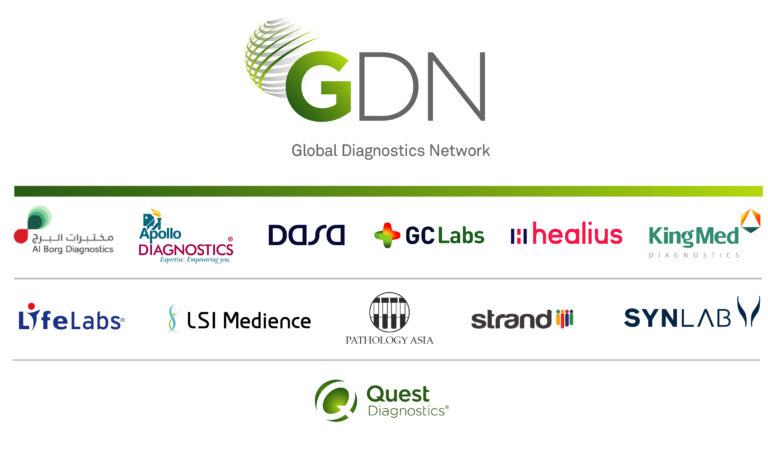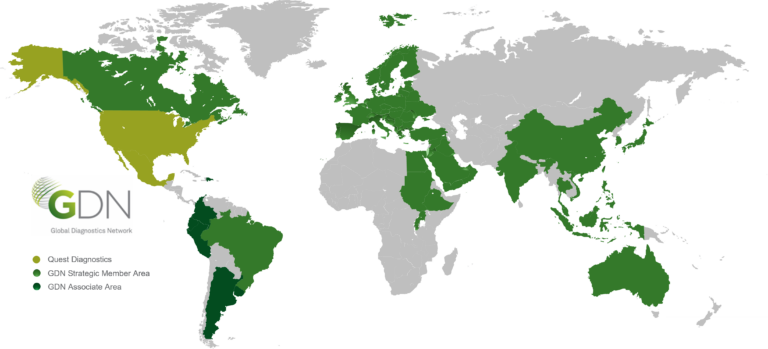Pathology Asia is pleased to announce its recent inclusion as a member of the Global Diagnostics Network (GDN), a strategic working group of diagnostic laboratories from around the world, each committed to introducing local innovations to generate enhanced diagnostics insights and improve global healthcare. Pathology Asia was introduced to this globe-spanning community in July 2023.

Established in 2018, the Pathology Asia group is one of the fastest growing diagnostics groups in the region. It is presently headquartered in Singapore and comprises leading diagnostic laboratories across Southeast Asia and Australia. These include Innoquest Diagnostics in Singapore and Innoquest Pathology in Malaysia – both leading diagnostics providers with over twenty years of experience in their respective countries; Singapore Diagnostics (SGD), one of the largest laboratories in the Philippines; and Safework Health and TissuPath in Australia. Most recently, Innoquest Indonesia and Innoquest Thailand were established in their respective countries with strategic partnerships lined up with local hospital groups. In addition, the Group has a Digital Diagnostics division, while its Genomics and Life Sciences arm comprises of LifeStrands Genomics in Australia and Singapore and DNA Laboratories, one of Malaysia’s preeminent genomics laboratories.
Pathology Asia aims to provide affordable and high-quality diagnostic services to Southeast Asia’s 680 million population while introducing innovative technologies and testing methods to doctors and patients, in line with its vision to be a laboratory by doctors for doctors, as set forth by its founder and Group CEO, Dr. Christopher Ting.
The Group is proud to be accepted to the Global Diagnostics Network as its primary member in Southeast Asia. Its membership in the GDN reinforces Pathology Asia’s commitment to ensuring that healthcare professionals are well-informed when making choices that will shape medical decisions and health diagnoses and furthering its goal to become a fully integrated digital healthcare organization.
About the Global Diagnostics Network
The Global Diagnostics Network (GDN) was conceptualized by US-based Quest Diagnostics as a worldwide community of leading healthcare companies. This worldwide network was designed to develop collaborations among the world’s leading healthcare companies to address the growing need for advanced diagnostic testing and high-quality healthcare services.
Presently, the Network has a presence in countries with two-thirds of the world’s population, and over 90% of the global pharmaceutical market. Its members include Quest Diagnostics, founding member and the world’s leading provider of diagnostic information services; and fellow members:
- Al Borg Medical Laboratories – The largest chain of private laboratories in the GCC with an expanding presence in Africa.
- Apollo Health & Lifestyle – India’s largest private integrated healthcare system
- Dasa – The largest diagnostic company in Brazil and Latin America
- GC Labs – Korea’s leading clinical laboratory
- Healius – Supporting affordable, accessible, and comprehensive healthcare for all Australians.
- Lifelabs – Canada’s leading provider of laboratory diagnostic information and digital health connectivity systems, enabling patients and healthcare practitioners to diagnose, treat, monitor, and prevent disease.
- LSI Medience – A leading healthcare diagnostics company in Japan
- KingMed Diagnostics – The leading medical diagnostic information services provider in China
- Pathology Asia – One of the largest independent clinical diagnostic service providers in Southeast Asia.
- Quest Diagnostics – The world’s leading provider of diagnostic information services
- Strand Life Sciences – Precision medicine solutions for better healthcare decisions
- SYNLAB – the leading medical diagnostic services provider in Europe
With the introduction of Pathology Asia, GDN’s presence now extends to the Southeast Asia region, home to almost 700 million people. For more information about the GDN, please visit www.globaldiagnosticsnetwork.com

